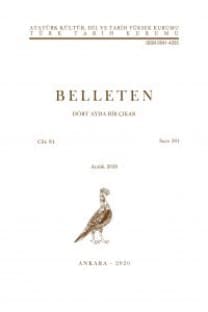JOSEF MATUZ, Krimtatarische Urkunden im Reichsarchiv zu Kopenhagen (Kopenhag Kraliyet arşivindeki Kırım - Tatar vesikaları) Freiburg 1976, Klaus Schwarz Verlag, mimeograph 348 s. XXX levha, Islamkundliche Untersuchungen 37. [Kitap Tanıtımı]
Josef Matuz, bu çalışmasıyla Osmanlı imparatorluğunun imtiyazlı emirliklerinden Kırım Hanlığı'nın kançılarya sistemini ve Danimarka Krallığı ile olan dış ilişkilerini aydınlatmayı amaçlıyor. Bunun için Danimarka arşivlerinde bulunan Kırım hanlarına ve Kalgay, Nureddin gibi önde gelen yöneticilere ait 27 adet vesikayı tahlil ediyor. Yazar 17. yüzyılda Kırım hanlığının yönetim örgütünü tasvir eden bir giriş yapıyor. Bu girişte yazar sorun yaratacak bazı açıklamalarda bulunuyor. Bunlardan birincisi Kırım'ın güney sahillerinde yaşayan tat adını alan bir guruptur. Burada yazar Minorsky'ye başvuruyor ama Oğuz gurubuna dahil Türkçe kullanan bu ahalinin niçin "Tat" diye adlandırıldığı sorusu bu açıklama (s. 4) ile cevaplandırılmış değil. İkinci nokta; Han'ın birinci dereceden veliahdı sayılan "Kalgay"ın J. Matuz tarafından "Kalğa" olarak telafuzunun nedeni de bu konuda kaynak olarak gösterdiği makaleye rağmen aydınlanmış değildir.
Anahtar Kelimeler:
Kırım-Tatar Vesikaları, Kopenhag Kraliyet Arşivi, Kırım Hanlığı, Kançılarya, Danimarka Krallığı
In the Light of British Foreign Office Documents: How Abdulhamit, the Ottoman Sultan, Leased Cyprus to Britain within Forty-Eight Hours
The Cyprus Convention : Article I of the Convention of Defensive Alliance - better known as the "Cyprus Convention" - signed between the Ottoman and British Governments on 4th June, 1878, was as follows: "If Batum, Ardahan, Kars, or any of them shall be retained by Russia, and if any attempt shall be made at any future time by Russia to take possession of further territories of His Imperial Majesty the Sultan in Asia as fixed by the Definitive Treaty of Peace, England engages to join His Imperial Majesty the Sultan in defending them by force of arms. In return, His Imperial Majesty the Sultan promises to England to introduce the necessary reforms, to be agreed upon later between the two Powers, into the Government and for the protection of the Christian and other subjects of the Porte in those territories. And in order to enable England to make the necessary provision for executing her engagements, His Imperial Majesty the Sultan further consents to assign the Island of Cyprus to be occupied and administered by England". The above Convention contained provisions of the highest political importance, for by it the British Government had entered into a formal engagement to maintain the integrity of the Turkish dominions in Asia against Russia. The general guarantee of integrity of Turkey incorporated in the Treaty of Paris of 1856 having broken down, Great Britain then acted alone. It was, according to J. W. Headlam- Morley and W. J. Childs of the British Foreign Office', a far reaching military commitment of a kind to which the British Government and Parliament had in those years been very averse.
- ISSN: 0041-4255
- Yayın Aralığı: Yılda 3 Sayı
- Başlangıç: 1937
- Yayıncı: Türk Tarih Kurumu
Sayıdaki Diğer Makaleler
Türk Tarih Kurumu Kitaplığına Yapılan Bir Bağış
Atatürk Hakkında Ozanlarımızın Söylediği Şiirler (1919-1938)
Türk Tarih Kurumu'nun Genel Kurul Toplantısı (25 Nisan 1978)
Okula Gazete Sokan Öğretmen Ali Suavi ve Günümüz Eğitiminde Benzer Girişimler
Saarbrücker Beitraege zur Altertumskunde Band VII (1970) [Kitap Tanıtımı]
